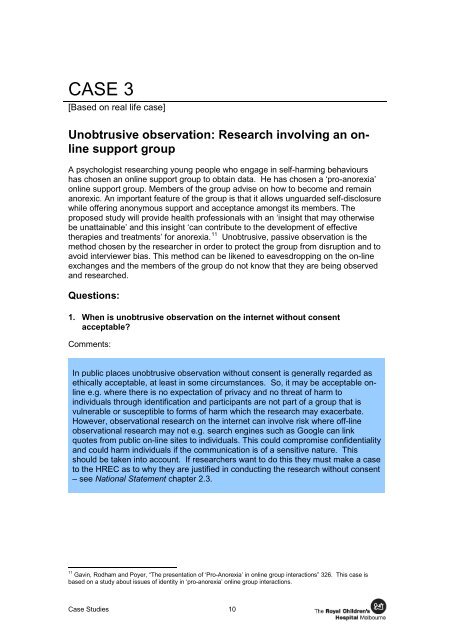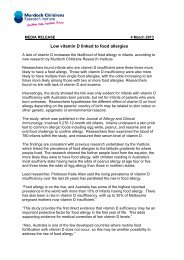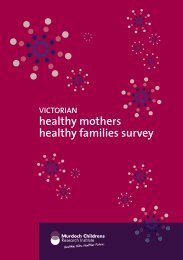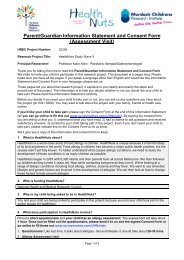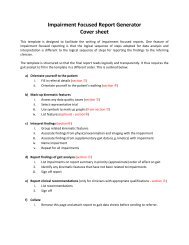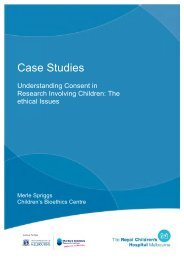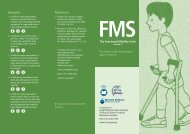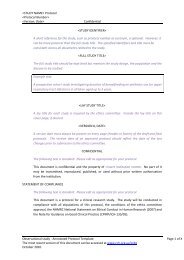Case studies: - Murdoch Childrens Research Institute
Case studies: - Murdoch Childrens Research Institute
Case studies: - Murdoch Childrens Research Institute
You also want an ePaper? Increase the reach of your titles
YUMPU automatically turns print PDFs into web optimized ePapers that Google loves.
CASE 3<br />
[Based on real life case]<br />
Unobtrusive observation: <strong>Research</strong> involving an online<br />
support group<br />
A psychologist researching young people who engage in self-harming behaviours<br />
has chosen an online support group to obtain data. He has chosen a ‘pro-anorexia’<br />
online support group. Members of the group advise on how to become and remain<br />
anorexic. An important feature of the group is that it allows unguarded self-disclosure<br />
while offering anonymous support and acceptance amongst its members. The<br />
proposed study will provide health professionals with an ‘insight that may otherwise<br />
be unattainable’ and this insight ‘can contribute to the development of effective<br />
therapies and treatments’ for anorexia. 11 Unobtrusive, passive observation is the<br />
method chosen by the researcher in order to protect the group from disruption and to<br />
avoid interviewer bias. This method can be likened to eavesdropping on the on-line<br />
exchanges and the members of the group do not know that they are being observed<br />
and researched.<br />
Questions:<br />
1. When is unobtrusive observation on the internet without consent<br />
acceptable?<br />
Comments:<br />
In public places unobtrusive observation without consent is generally regarded as<br />
ethically acceptable, at least in some circumstances. So, it may be acceptable online<br />
e.g. where there is no expectation of privacy and no threat of harm to<br />
individuals through identification and participants are not part of a group that is<br />
vulnerable or susceptible to forms of harm which the research may exacerbate.<br />
However, observational research on the internet can involve risk where off-line<br />
observational research may not e.g. search engines such as Google can link<br />
quotes from public on-line sites to individuals. This could compromise confidentiality<br />
and could harm individuals if the communication is of a sensitive nature. This<br />
should be taken into account. If researchers want to do this they must make a case<br />
to the HREC as to why they are justified in conducting the research without consent<br />
– see National Statement chapter 2.3.<br />
11 Gavin, Rodham and Poyer, “The presentation of ‘Pro-Anorexia’ in online group interactions” 326. This case is<br />
based on a study about issues of identity in ‘pro-anorexia’ online group interactions.<br />
<strong>Case</strong> Studies 10


